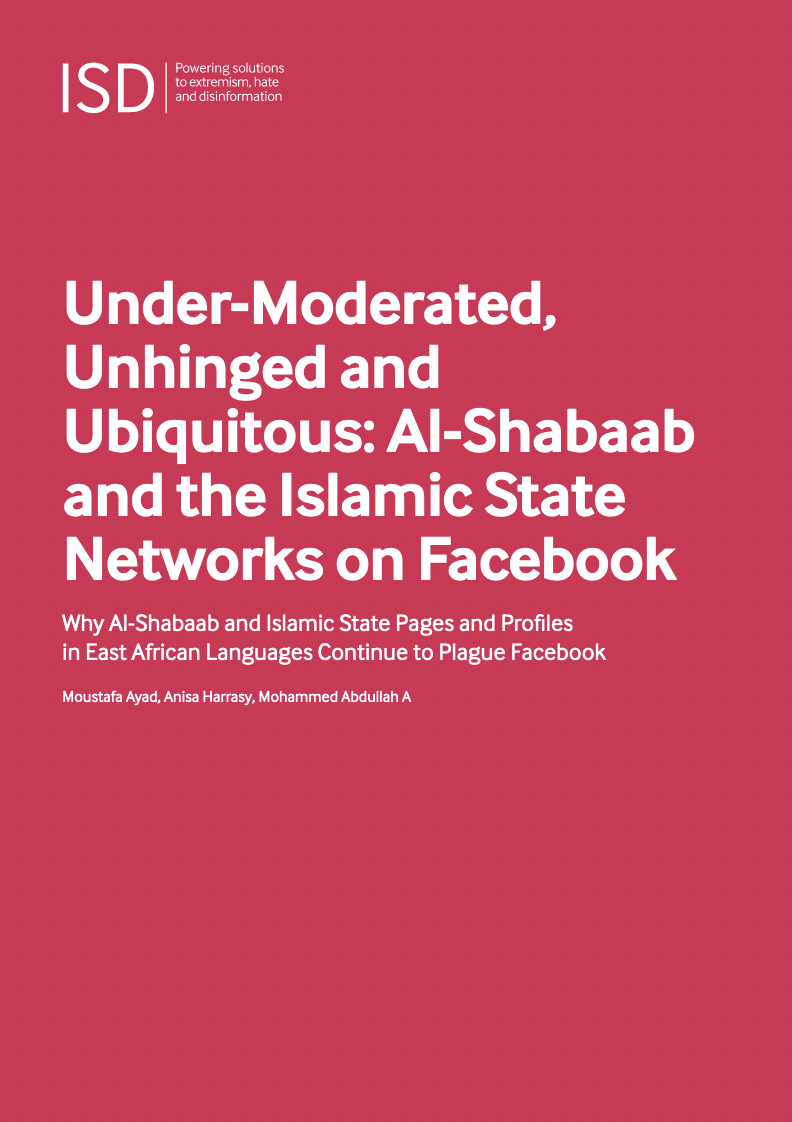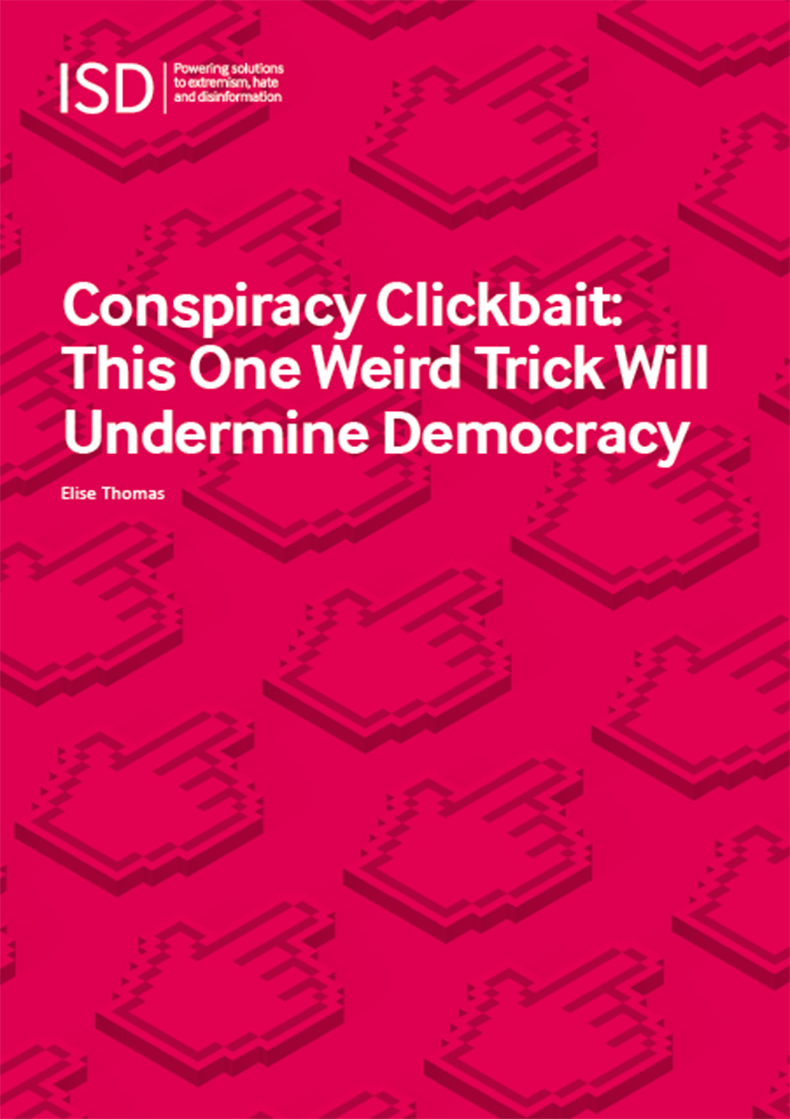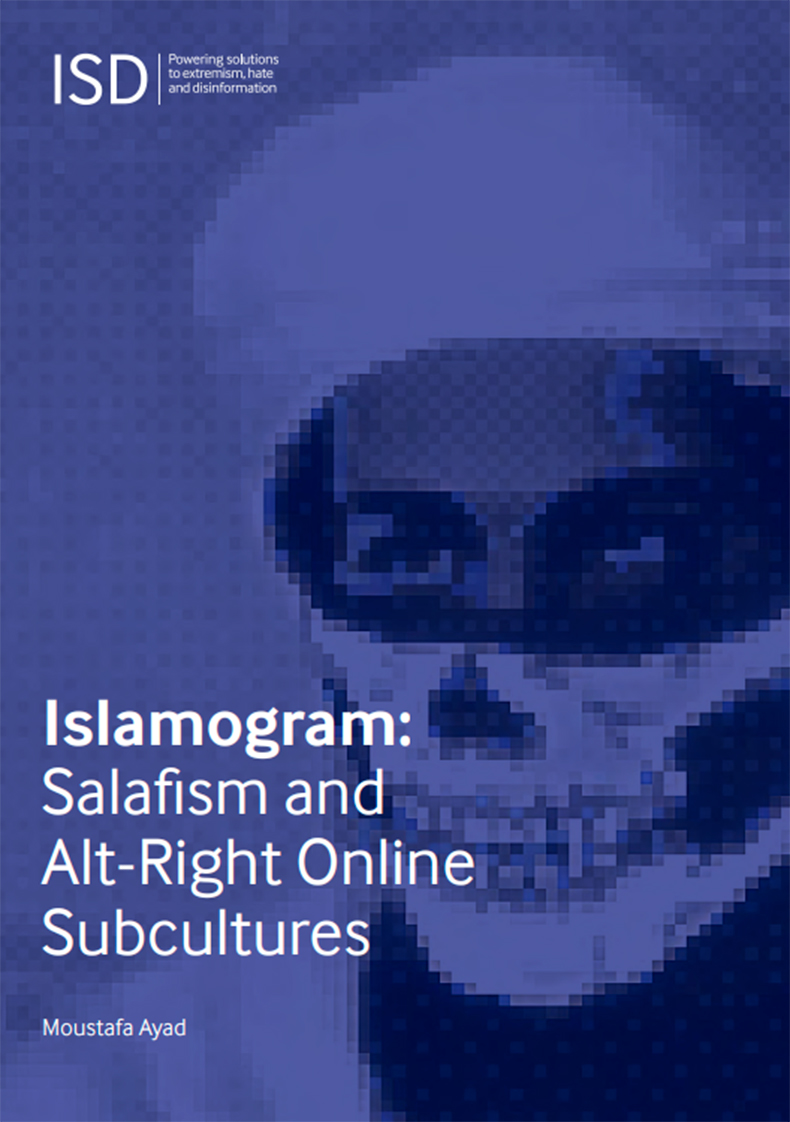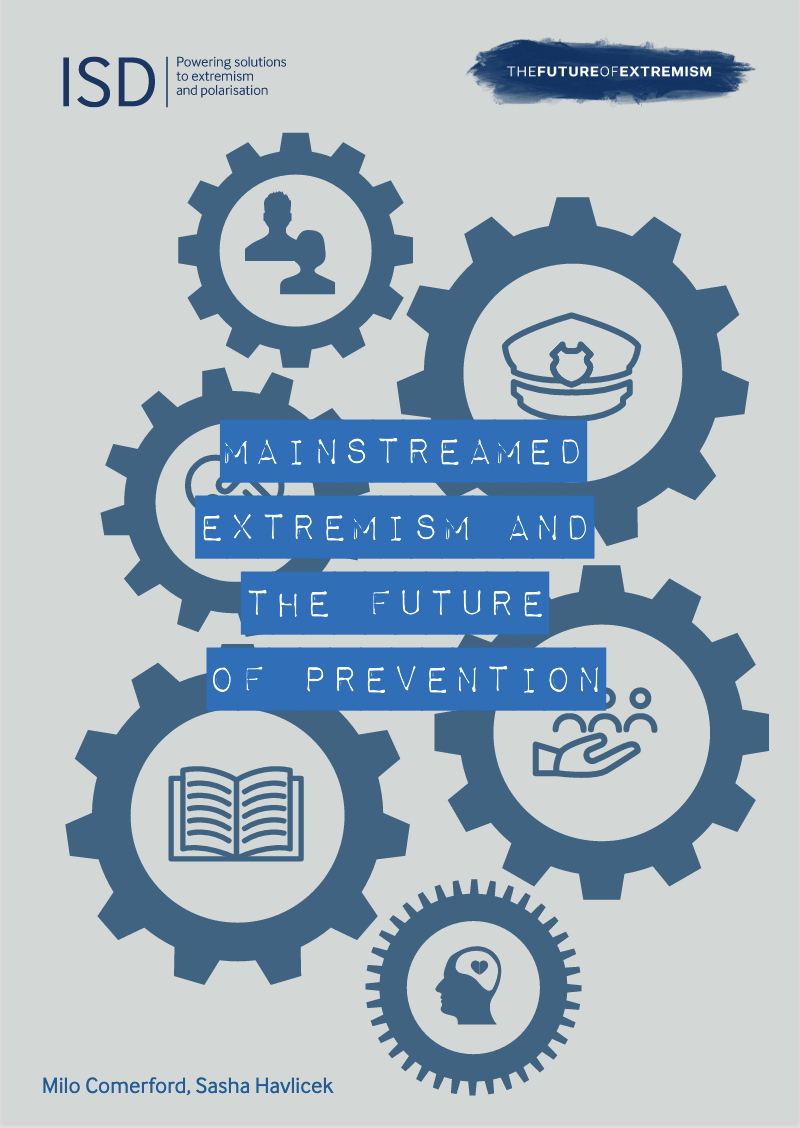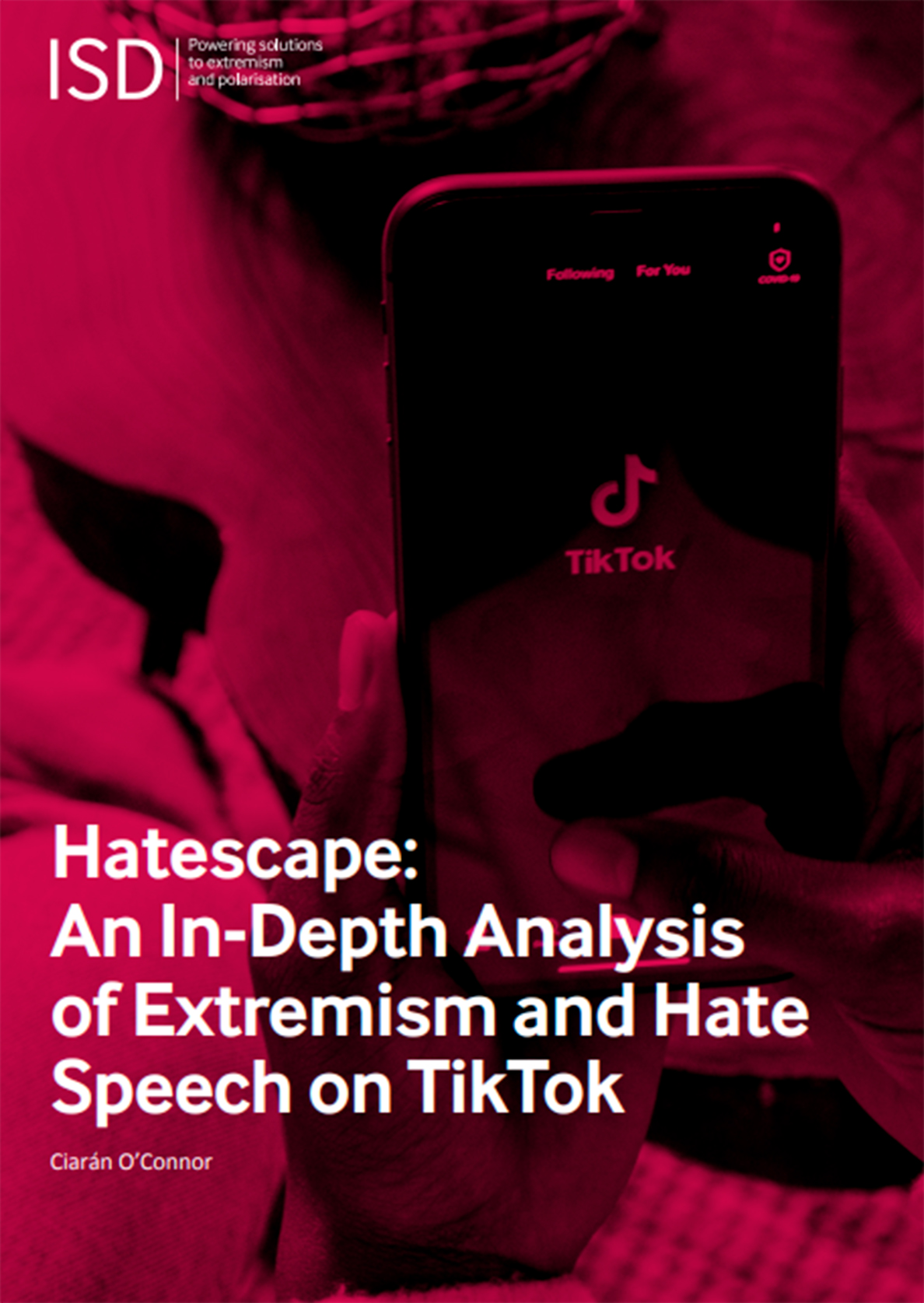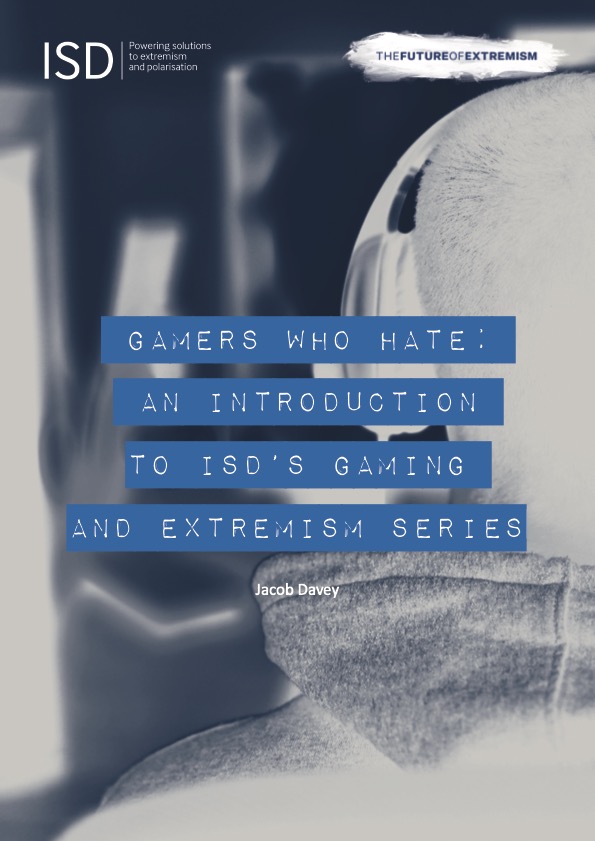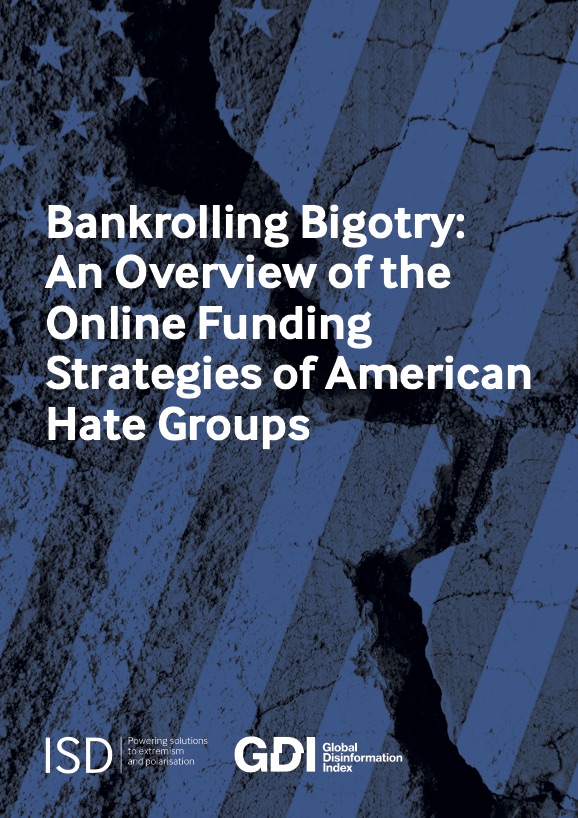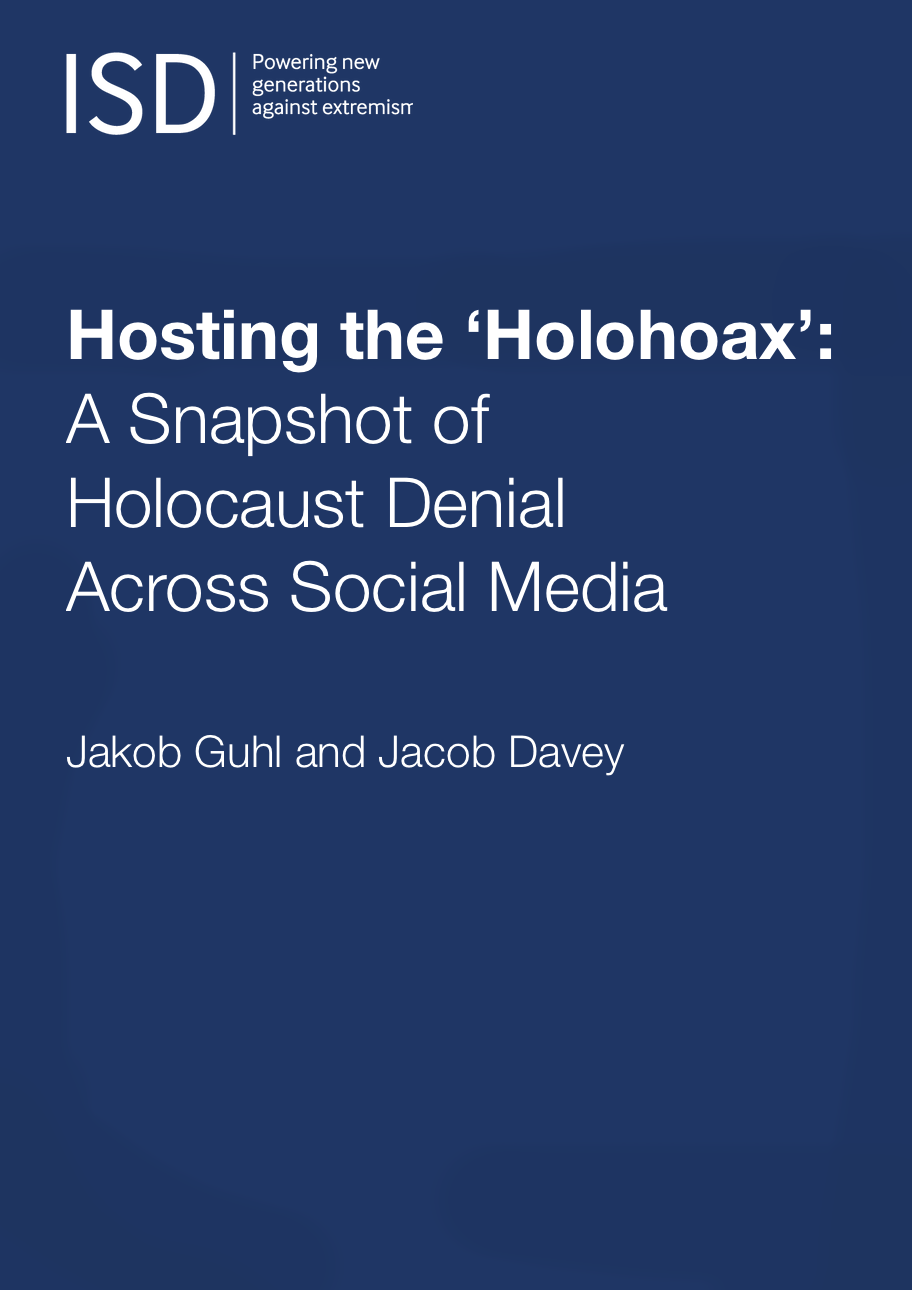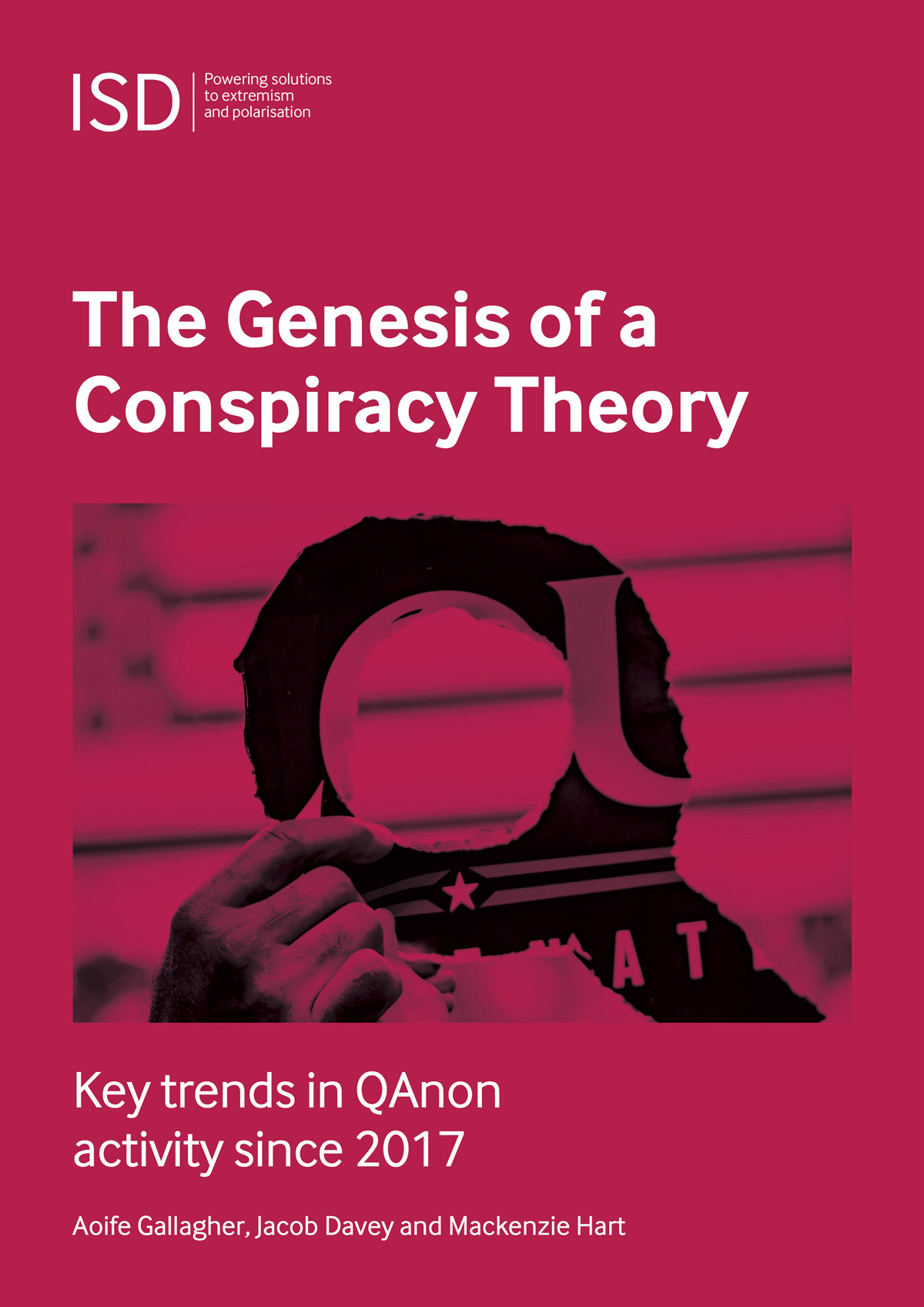ISD
Amman | Berlin | London | Paris | Washington DC
Copyright © Institute for Strategic Dialogue (2025).
ISD UK is a charitable company limited by guarantee (registered charity number 1141069, registered company number 06581421), registered address 3rd Floor, 45 Albemarle Street, Mayfair, London, W1S 4JL.
ISD-US is a non-political, not-for-profit corporation registered in the District of Columbia with 501(c)(3) status (tax ID 27-1282489), registered address Suite 285, 1032 15th St. NW, Washington DC, 20005.
ISD Germany is a gGmbH registered with the Berlin-Charlottenburg District Court (HRB 207 328B), registered address c/o Schomerus & Partner mbB Berlin, Bülowstraße 66, 10783 Berlin.
ISD France is a non-profit association registered under the status of Association de loi 1901 (registration number W751256497), registered address 128 rue La Boétie, 75008 Paris.
ISD Jordan is a non-profit Limited Liability Company registered in the Hashemite Kingdom of Jordan (company number 1425), registered address 14, Grand Complex, Queen Musbah Street, Amman, Jordan.
All Rights Reserved. Any copying, reproduction or exploitation of the whole or any part of this website without prior written approval from ISD is prohibited.

